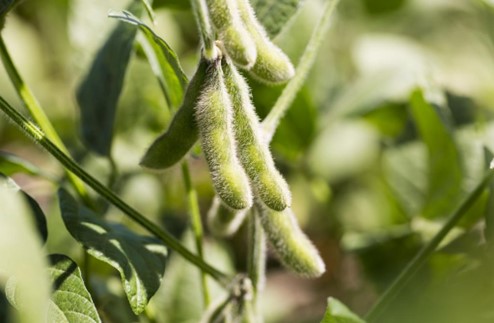Soy Production in Brazil and Child Cancer Deaths | 16 Nov 2023
Why in News?
A recent study has identified a connection between the significant increase in soy/soyabean production in Brazil's Amazon and Cerrado regions over the past two decades and a rise in pediatric cancer-related deaths. The expansion of soy farming in these areas has been accompanied by a substantial increase in pesticide usage.
What are the Key Highlights of the Study?
- Correlation Between Soy Production and Pediatric Cancer Deaths:
- The study conducted revealed a statistically significant correlation between the increase in soy production and deaths from Acute Lymphoblastic Leukaemia (ALL) in children from 2008 to 2019.
- Pesticide Exposure through Water Supply:
- The study suggested that pesticide exposure likely occurred through water supply penetration. In essence, a 10% increase in the municipal area dedicated to soy farming raised the likelihood of a child under five dying from ALL by 1.3% and by 1.6% for children under ten.
- Policy Recommendations:
- The research highlighted a strong and persistent relationship between the expansion of high-intensity agriculture in the region and adverse human health outcomes.
- However, access to high-quality healthcare systems could mitigate these links, especially for treatable conditions like ALL.
- The research highlighted a strong and persistent relationship between the expansion of high-intensity agriculture in the region and adverse human health outcomes.
What is ALL?
- ALL, also known as acute lymphocytic leukemia, is a type of cancer that affects the blood and bone marrow. It is characterized by the rapid and uncontrolled growth of immature white blood cells called lymphoblasts. These abnormal cells crowd out normal white blood cells, red blood cells, and platelets, leading to various health problems.
- This type of leukemia is most commonly diagnosed in children, but it can affect adults as well.
- ALL is a highly treatable cancer conditional on timely and high-quality care.
Soyabean Crop
- Soyabean is a Kharif crop in India.
- Soybean (Glycine max) is the world’s most important seed legumes which contributes 25% to the global edible oil, about two third of the world protein concentrate for livestock feeding and is a valuable ingredient in formulated feeds for poultry and fish.
- It is predominantly grown as rainfed crop in Vertisols and associated soils with an average crop season rainfall of 900 mm.
- Major Producing States in India: Madhya Pradesh, Maharashtra, Rajasthan, Chhattisgarh, Andhra Pradesh and Karnataka.

